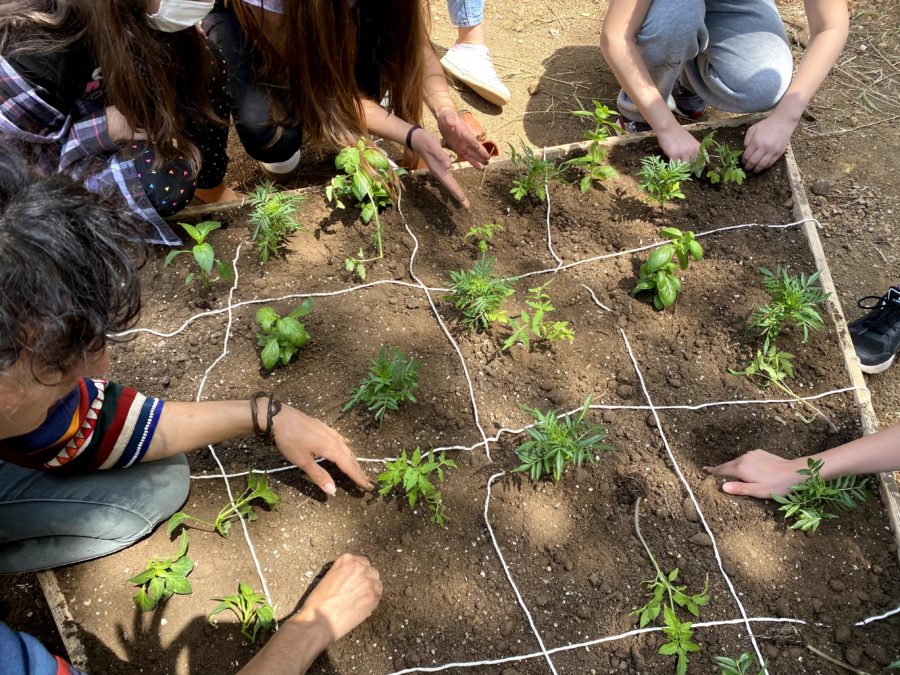
The Soil for Life Association (Yaşam İçin Toprak Derneği) received a grant and capacity development support from our Digital Transformation Fund for Environmental Sustainability in 2021 to conduct digital transformation activities with the aim of becoming a reference centre on compost and soil improvement issues.
Read below our interview:
The Soil for Life Association is working to ensure ecological sustainability. What is ecological sustainability? Is it possible to live a life in cities that is compatible with the understanding of ecological sustainability?
With the assumption that the sun is an endless source of energy, a sustainable system must produce the energy required for renewal at the end of its life and also provide the energy it needs throughout its life. A system cannot be economically sustainable and not ecologically sustainable. When we consider such a definition of sustainability, we see that no system created by human hands is sustainable. Then, what should we do? We should reconsider the systems we have built, by shifting our focus towards natural ecosystems. Cities do not support sustainability in this context. So, we can work to change our habits and increase awareness to create demands that support sustainability.
For example, those who have started composting instead of throwing away food waste in the city now request local governments to make use of these composts. Those who make room for compost in their kitchens also worry about the climate crisis, the food crisis, and the policies to solve these crises. The ethical perspective resulting from their practices pushes them to expect their social circles and the actors of the political economy to be responsible as well.
If the great economic and political actors in the world had given up their destructive and wrong policies and taken the right steps to prevent the crisis, then our efforts could have made a big difference.
Turkey is expected to face a major food crisis in 2022. What is the cause of this crisis? Can you talk about what we can do on an individual level to delay or prevent the crisis?
Agricultural policies currently implemented in Turkey turn the economic crisis into a food crisis. Unfortunately, our agricultural practices are based on the use of imported inputs (fertiliser, pesticides, herbicides, etc.). The worst part is that even if we see the results of these inputs in production in the short run, they are killing our land in the long run. It is necessary to reorganise this system in a way that is as self-sufficient as possible and supports the sustainability of the soil while reducing its dependence on external sources.
If the great economic and political actors in the world had given up their destructive and wrong policies and taken the right steps to prevent the crisis, then our efforts could have made a big difference. Right now, the best hope for individual efforts is to raise social awareness. To hope that my neighbour’s care when choosing her food and transforming her waste, and watching how she is positioned as a consumer, will make me realise the problem first, and then the solution. Let’s not forget that the actions we take in this regard transform not only us but also our environment.
In which capacity development areas for the digital transformation of the association did you work on with the grant and capacity building support you received from the Fund?
We focused on our organisational development and digital transformation. In addition to participating in the trainings organised within the scope of the grant, we reviewed our goals, objectives, and strategies methodologically, and worked on the issues that we clarified with the mentor support we received. As part of our digital transformation, we renewed our website, launched our YouTube channel, and created resources for content production. We also created a library section in our website. In addition, we completed our plans for a podcast where we will talk about land starting from 2022.
The Digital Transformation Fund for Environmental Sustainability has been the lifeblood of CSOs who have just started their lives and are trying to consolidate their place alongside major actors.
How has the support you received from the Digital Transformation Fund for Environmental Sustainability contributed to your association? Do you have a message for our donors who supported the Fund?
The support we received has contributed greatly to making visible the foundations on which we established our association. In addition to financial support, we want to underline that the trainings were very useful for an association that has just started to take steps in completing its organisational development. Thanks to the management of the grant and reporting processes and the mentoring program, we had the space to do the work we want to do, which made us more productive. The Digital Transformation Fund for Environmental Sustainability has been the lifeblood of CSOs who have just started their lives and are trying to consolidate their place alongside major actors. We thank all the donors for supporting the Fund.
Can you tell us about the areas and activities that the Soil for Life Association will prioritise in 2022?
We will continue the digital transformation to share information and raise awareness on different platforms (Medium, podcast, etc.) in 2022. In the second half of the year, we aim to advance our “Schools Are Transforming” program through a new methodology. In parallel with these efforts, we will continue the fundraising activities which we started during the grant period.
About the Soil for Life Association
The Soil for Life Association focuses on the waste problem in the city and carries out activities to encourage recycling and composting. The association works especially with women, young people, and children to share information and conduct projects on teaching the best ways for composting and recycling in city life.



